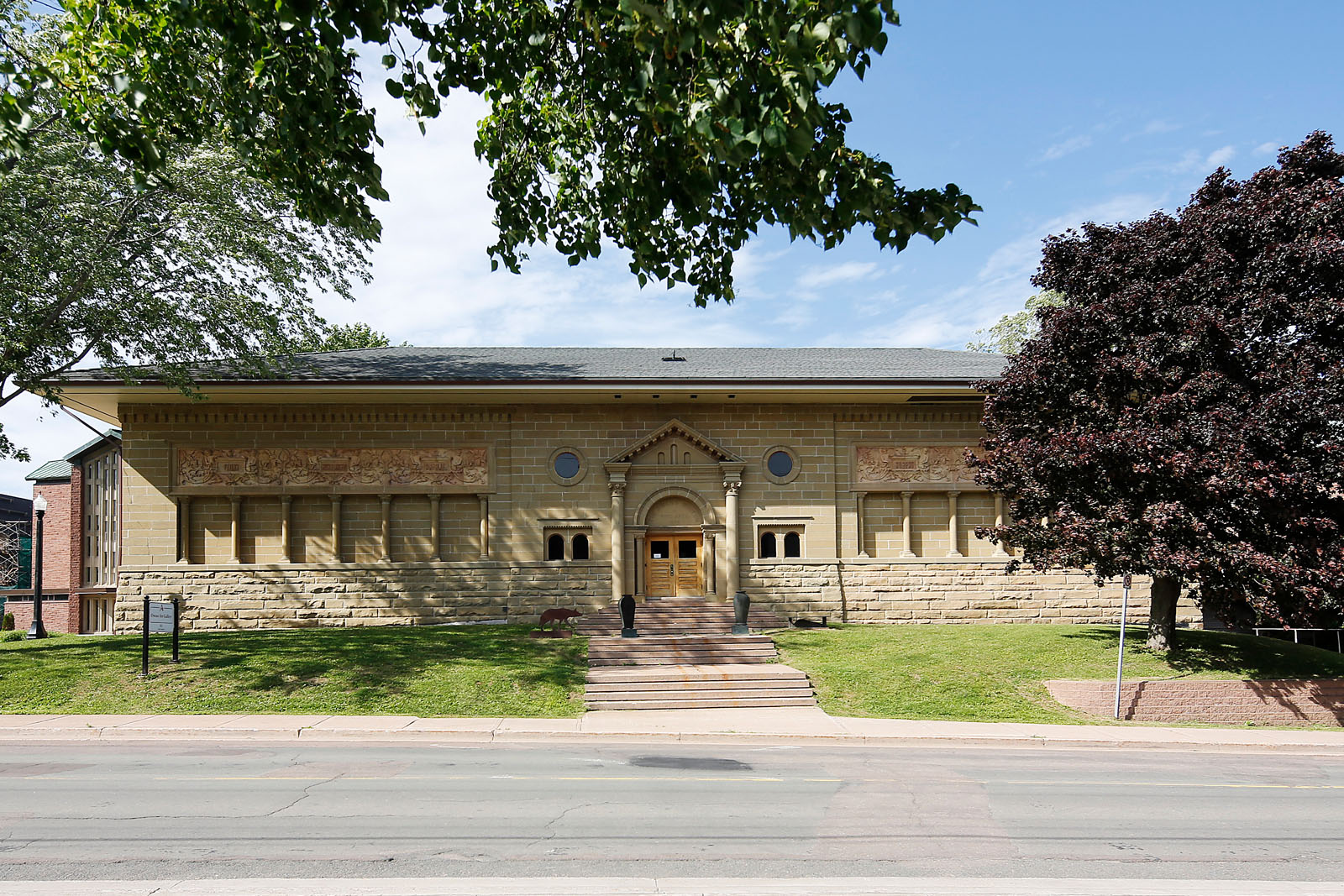Overview
The teaching of art at Mount Allison can be traced back to the opening of the Women's Academy in 1854. It has been an important part of the curriculum since that time.
In 1941 Mount Allison was the first university in Canada to give a BFA degree in the visual arts.
At a Glance
Curriculum
At Mount Allison, Fine Arts offers a unique approach for students looking to obtain professional training — combining studio work and instruction with the freedom of an immersive liberal arts curriculum.
The Fine Arts program gives you the opportunity to develop your creative and critical ability through studio courses in:
- drawing
- painting
- photography (analog and digital)
- printmaking (lithography, silkscreen, intaglio, relief, and letterpress)
- sculpture and installation
- open media
First-year studio courses give you a broad knowledge and skill base. Second- and third- year courses build on this foundation and focus on selected studio areas.
In your final year, you create a body of work through independent study.
In addition to studio classes, you'll undertake courses and seminars that foster an understanding of art history and visual culture.

The Pierre Lassonde School of Fine Arts at Mount Allison builds on the Fine Arts program's long-standing history of arts education and artistic practice.
The Lassonde School complements new learning, scholarship, and arts initiatives designed to enrich the student-artist experience at Mount Allison, including:
- entrance scholarships for first-year Fine Arts students
- upper-year scholarships for students in Fine Arts, Art History, and Museum and Curatorial Studies
- paid arts internships
- artist-in-residence program
Degree options
At Mount Allison, there are different levels of Fine Arts depending on your interests, skills, and career goals.
Bachelor of Fine Arts (BFA)
The Bachelor of Fine Arts is primarily intended to develop creative ability in drawing, painting, photography, printmaking and sculpture.
The major part of the program consists of studio work, and includes instruction in the principles of design and the use of various media.
In addition to the studio classes, illustrated lectures and seminar courses in art history are designed to improve your artistic judgement and assist in acquiring an ability to write and speak about works of art.
A BFA degree (120 credits) includes:
- Fine Arts (72 credits)
- Art History (24 credits)
- Electives (24 credits)
Bachelor of Arts (BA) in Fine Arts
A Bachelor of Arts student with a major in Fine Arts, you'll also take a combination of studio work and art history.
As a BA student, you'll have more flexibility to combine your Fine Arts courses with courses in other disciplines.
A BA Fine Arts (120 credits) includes:
- Fine Arts (60 credits)
- Any minor (24 credits)
- Electives, distribution credits (36 credits)
Minor in Fine Arts
Fine Arts is also available as a minor (24 credits), consisting of mostly studio work. Minors can be combined with any degree.
Courses open to all students
Some first-year Fine Arts courses are open to students from other degree programs, depending on available space, and with written permission of the department.
Not sure about the difference between a major, a minor, an honours, and a certificate?
FINA 1101 — Fundamentals of Drawing I
This course will introduce the student to drawing as a common language of expression in the visual arts. A variety of drawing media will be used.
FINA 1941 — Examining Studio Practices
This course examines elements and conditions of what constitutes a studio art practice, to ground first year fine arts students' understanding of studio-based education within a contemporary cultural context.
FINA 2211 — Lithography
This course introduces lithography printmaking techniques.
FINA 2401 — Sculpture I
This course addresses the basic sculptural practices through a variety of sculptural traditions, including wire, wood, mesh, scavenged or natural materials and clay.
FINA 3501 — Intermediate Photography I
This course covers the use of medium and large format cameras in the context of landscape and studio work, through use of colour and black and white materials.
FINA 4821 — Advanced Independent Studio I
This course requires that students create studio work independently while working with one faculty advisor thereby meeting a student's needs for critical feedback in a singe medium or in various media.
ARTH 2101 — Introduction to Art History
This course provides a chronological introduction to the history of Western art from the early Renaissance to the present day. It explores critically the major movements that shaped art throughout these periods.
ARTH 3021 — Canadian Art from its Beginning to the 1960s
This course surveys the history of art in Canada from its beginnings to the 1960s within its historical, social, political, and cultural contexts and considers the ways in which art history and its narratives function. Topics include: the art of Canada's Indigenous peoples; topographical and portrait traditions in the Colonial period; landscape painting and the idea of Nationhood; mysticism and nature in Canadian painting; art and democracy; formal experimentation and the urban space in the art of the Inter-War Years; the development of Canadian sculpture; modernism in Canadian painting; Quebec art, politics, and the Church; and the development of abstraction.
Find a full list of Fine Arts courses in our

Faculty Spotlight
Jerry Ropson
Associate professor, Fine Arts
Careers
Whether you're entering the job market or continuing your education, your Mount Allison degree will stand out.
Mount Allison has been recognized by Maclean's as the top primarily undergraduate university in Canada more times than any other university.
With experiential learning and career development opportunities available in every degree, you'll also graduate with hands-on learning and real-world experience.
Our graduates also boast extraordinarily high acceptance rates to top graduate programs and professional schools such as law and medicine.
Popular career paths for Fine Arts graduates include:
- artist
- architect
- art gallery director/curator
- cartoonist/animator
- cinematographer
- exhibit preparator
- designer
- illustrator
- interior decorator
- landscape designer
- medical/scientific illustrator
- art critic
- art educator
- art therapist
- conservator/restorer
- gallerist
- web designer
Alumni Spotlight
Ian Metcalfe ('02)
Bachelor of Fine Arts
Director of visual merchandising and licensing, Joe Fresh; Conceptual artist and designer of the Joe Fresh 2024 Pride Collection
» Fine Arts alumnus Ian Metcalfe's journey to bridging art and fashion

Testimonials

I came to Mount Allison because I wanted a close-knit environment where I could have the creative freedom to explore. The Fine Arts department allowed me to do just that with professors who make this program feel like a family. The small classes, fantastic faculties and opportunities to do interdisciplinary studies and grant projects give you the chance to experience real world applications before you even graduate.

The four years I spent studying fine arts at Mount Allison were engaging and fulfilling. This degree will have you focused on developing technical skills and expanding the bounds of your artistic knowledge. No matter who you are, you will find a community at the Purdy Crawford [Centre for the Arts], whether that be through the professors or your colleagues.
Extras

Purdy Crawford Centre for the Arts
Opened in the fall of 2014, the PCCA is regarded as one of the finest arts facilities in the country.
Home to the Department of Fine Arts, the 50,000-square-foot centre includes contemporary art studios with facilities for painting, printmaking, sculpture, photography, and other media.
The PCCA is also home to the Drama Studies program, providing opportunities for interdisciplinary collaborations.

Owens Art Gallery
Opened to the public in 1895, Mount Allison’s is the oldest university art gallery in Canada and is an invaluable resource to students.
The gallery’s collection contains paintings, photographs, prints, sculpture, and multi-media work by established Canadian and international artists. One of the featured permanent exhibitions is devoted to the work of renowned Canadian artist — and Fine Arts alumnus — Alex Colville ('42).
Fine Arts students can also work at the front desk and assist with family programing.

Art Conservation Lab
The Art Conservation Lab at Mount Allison is a significant resource within the Owens Art Gallery — it provides facilities and equipment for the documentation, preservation and treatment of artwork from the Gallery's collection.
It also offers important mentoring opportunities for Mount Allison students who wish to work with the gallery's Art Conservator. This is the only paintings conservation lab in New Brunswick.
Applying to Fine Arts
For students applying to study Fine Arts, including: the Bachelor of Fine Arts (BFA), the Bachelor of Arts (BA) in Fine Arts, or a minor in Fine Arts.
In addition to the general University admission application, students applying to Fine Arts must also submit:
- a Fine Arts application
- a portfolio
To find out more, visit applying to Fine Arts.
Deadline for Fine Arts application: Feb. 15
Portfolio Day
The Department of Fine Arts hosts a Portfolio Day every year. This is a chance to meet our faculty and get feedback on your creative work and ask questions before officially submitting your portfolio. For more information, visit the Department of Fine Arts.
/current-students/pierre-lassonde-school-fine-arts
Admission Requirements
Academic Awards
Mount A is #2 in student awards
²Ñ²¹³¦±ô±ð²¹²Ô’s ranks Mount Allison second in student and faculty awards in its latest University Rankings. To date, 56 Mount Allison students have become Rhodes Scholars — one of the best per capita records in Canada.

